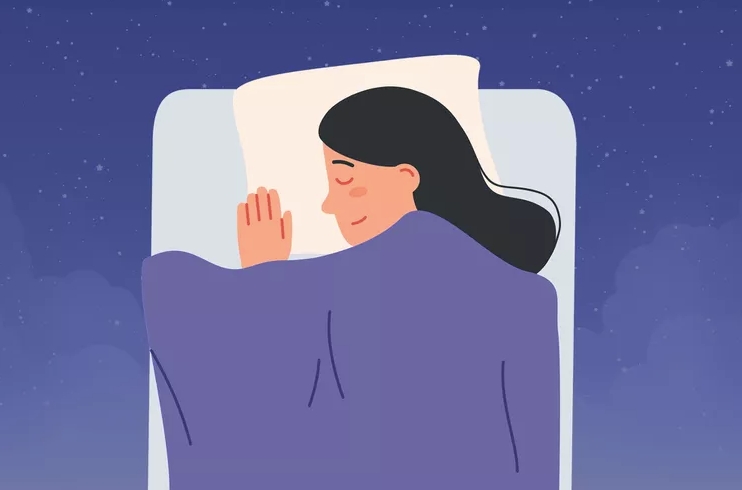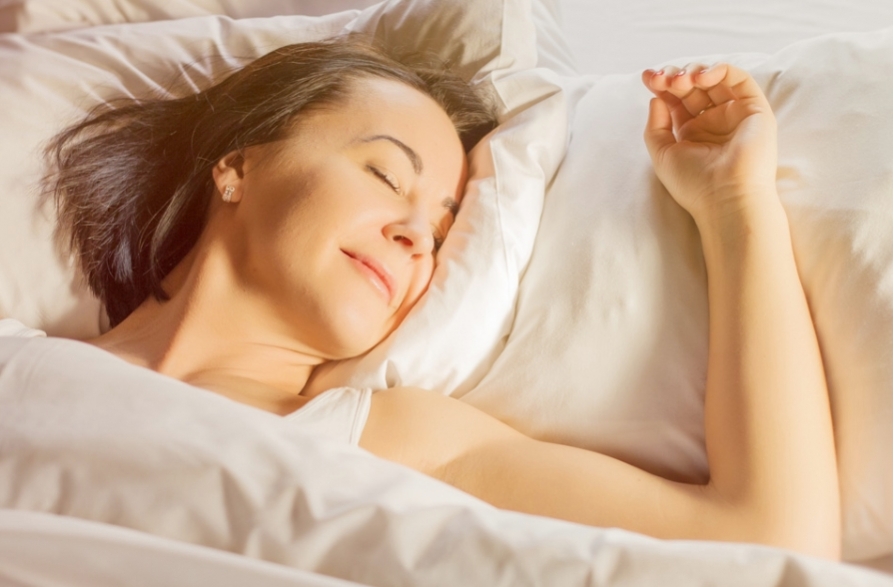Sleep better and live better!Explore the way of healthy sleep

What is the secret of getting quality sleep and how much sleep should you get? Livi GP Dr Roshaan Saaloojee shares her tips on how to get better sleep
Are you wide awake, staring at the ceiling or tossing in bed at 3am, or just randomly wide awake? It’s not uncommon to have trouble sleeping. A global review of sleep found that as much as one third of people struggled to sleep the 7 hours per night recommended.
Recent research shows that we are all getting less quality sleep.
What can we do to improve our sleep?
Why is sleep important?
Dr Saloojee says that good sleep is crucial for the body and mind to work properly. It’s just as important as regular physical activity and a healthy eating plan. Sleep can make us feel refreshed, alert, and help us maintain a healthy body weight .
Poor sleep can have negative effects on your body, such as a reduced ability to concentrate, increased weight, and a higher risk of heart disease, diabetes, and obesity. Chronic sleep disorders can negatively affect our mental health and mood.
Sleeping problems can be caused by a variety of factors. These include mental health issues like depression, shift work and Stress.
It’s vital to find out the specific reasons behind your sleep issues, especially if they last more than two months.
How much sleep do I need?
Dr Saloojee says that most adults require between 7-9 hours sleep per night in order to function at their best. ‘Children need even more.’
Sleep is important, so you should prioritize it as much as possible.
What are common sleep disorders?
- Sleeping difficulties
- Having trouble falling asleep after waking up in the night
- Early morning wake-up
Sleep disorders include nightmares, night terrors and talking or walking in your sleep. These things can all affect the quality of sleep.
Being tired and not sleeping well can cause us to feel anxious at bedtime. This can then make it harder for us to fall asleep. It can lead to a downward spiral in which you begin to associate sleep with stress instead of rest.
You can reduce your stress by taking care of yourself or talking to a therapist or doctor.
How can I improve my deep sleep?
Dr Saloojee says that when we fall asleep our bodies go through a cycle of sleep divided into four stages. Deep sleep is the most physically restoring stage of sleep.
The first three stages of sleep are called NREM sleep (non-rapid eyes movements) and the fourth is rapid eye movements (REM sleep).
Stage 1 NREM: Lightest sleep
You’re about to fall asleep. You might experience slow, rolling eye movements, sudden jerks or muscle spasms. You can easily wake up at this stage.
Stage 2 NREM-light sleep
This is the stage of light sleep that precedes deeper sleep. You will notice that your heartbeat is slowing and that your body temperature is dropping. The second stage is usually the longest.
Stage 3 NREM – deep sleep
The third stage is a deep restorative sleep which helps you to feel refreshed the following day. You are breathing and heartbeat at the lowest level. You’re more difficult to wake up during this time.
Stage 4 REM – deepest sleep
The deepest sleep is REM sleep. The first stage occurs about 90 minutes after falling asleep. You’ll notice that your eyes are moving rapidly behind your eyelids. Your heart rate will also increase and your brain will become more active. Most of your dreams occur at this time.
The sleep cycles last 90-120 mins and repeat themselves several times throughout the night. NREM makes up about 80% of each sleep cycle.
Dr Saloojee says that ‘good sleep hygiene, or a regular sleeping routine, can improve your sleep quality and help you get deeper NREM sleep to feel more refreshed the following day.
How can I sleep more comfortably?
Dr Saloojee offers these tips to help you get a better night’s sleep and a deeper one.
Daytime
- Keep your sleep schedule as consistent as you can
Our internal body clock controls our sleep cycle and determines when we are tired or alert. The clock runs on a 24-hour rhythm, also known as the Circadian Rhythm.
Even on weekends, keeping your circadian rhythm in check is possible by maintaining a consistent sleeping and waking time.
- Spend time outside
Sunlight (or artificially bright light) helps maintain a healthy circadian rhythm. Researchers have found that exposure to light daily increases the quality and length of sleep at night.
Evening
- Caffeine: Be aware
Avoid caffeine in late afternoons and evenings. Caffeine keeps you awake and stimulates your nervous systems, which is not what you want to do at night. Caffeine levels can stay elevated in your body for up to 8 hours, which can have a significant impact on your sleep.
- Watch your alcohol intake
Alcohol can also affect your sleep negatively. According to research, alcohol may make you sleepy initially but disrupt your sleep in the evening and early morning. Alcohol consumption has been associated with snoring.
- Turn off the lights
Avoid using blue light, such as that from your phone, TV and laptop in the evening. This can fool your circadian clock into thinking it is still daytime. This reduces hormones such as melatonin which help you to relax and sleep.
- Relax before bedtime
Relaxing at night can help you reduce your stress and prevent racing thoughts before bed. Try taking a shower or bath, reading a book, listening to music, meditating or using breathing techniques.
Before bed
- Improve your chances of uninterrupted sleep
Small changes can have a huge impact if you are woken up by daylight or a snorer. Use thick curtains, blinds, an eye mask or earplugs to make your bedroom dark and quiet.
You will be able to wake up when you awaken
- Keep a sleep diary
Note when you have a bad night’s sleep and when you are able to sleep well. You can use this information to identify possible triggers and factors, which will be helpful if you consult a physician.

What happens if sleeplessness becomes a chronic problem?
Insomnia is a sleep disorder that can cause regular problems with sleeping.
Speak with a doctor in the following situations:
- You have already tried simple lifestyle solutions
- You have been suffering from insomnia for a few weeks or longer
- You are having trouble coping with your everyday life because of sleep problems
Your doctor can help you identify the causes of insomnia, and provide advice on how to improve your sleep hygiene. You may be referred to a talking therapy such as cognitive behavioral therapy (CBT), that can help you uncover the reasons why you are having difficulty sleeping.
In rare cases, a physician may prescribe medication. You may be referred to a sleep lab for an investigation if you have chronic sleep disorders. It may include an in depth analysis and monitoring your sleep.
